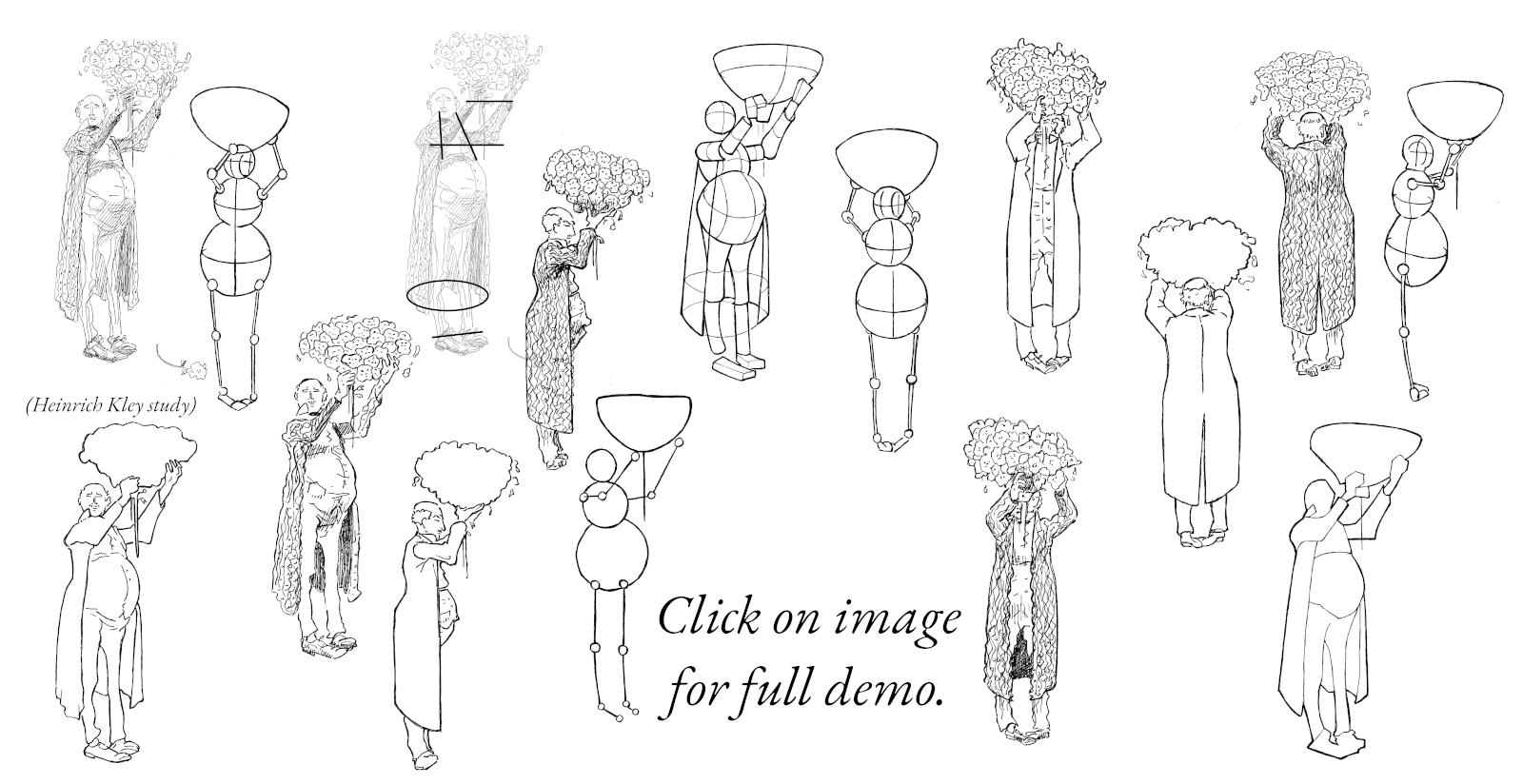#140 - Does Theoretical Knowledge Hamper The Creativity Of The Artist And Prevent Them From Coming Up With Original Ideas?
And is ignorance bliss?Try Drawing This!
Drawing demonstration: imagining what a figure might look like rotated.
Later, I learned that professors had whole drawers full of letters from people who had developed new physics theories. They were hoping to be the next Einstein, and they sent their theories to these professors to be recognized for their brilliance.
I sat in talks at conferences where such theories had seeped through the cracks, and now they were presented there. For us physicists with formal training, these theories were rather naive. They didn’t take into account all the things we had observed in laboratories, and these theories were wrong for reasons that were obvious to us.
These people hadn’t studied the foundations of physics and could not build on top of existing knowledge. They hadn’t even studied the language of math used to express physics theories succinctly.
On the other hand, properly trained physicists regularly come up with original ideas. Ideas that have potential, ideas that might have merit. Ideas that don’t contradict the facts we know and which can be verified in laboratories because theories create predictions that can be verified in laboratories.
Does knowledge hamper creativity?
Does knowing perspective hamper creativity? I think not. You can be creative with it and decide on a fish-eye perspective, drop perspective entirely, make the image flat and use other depth cues, or discard depth altogether and focus on shape language.
Does knowing anatomy hamper creativity? I don’t think it does. You can decide how close you want to stay to proper anatomy, decide to leave things out, and invent your approximations of anatomy.
You can use your knowledge of gestures to tell a story or convey a mood to give objects gestures. You can depict a tree as being sad or happy by giving it a gesture. You can even make separate lines that express sadness or happiness.
In the end, it is about expressing your unique ideas, but it is essential to learn how to express yourself accurately, and it is crucial to learn how to evaluate the merits of an idea. Those require knowledge of the field you’re in. This holds for scientists, writers, musicians, engineers, architects, and, yes, also artists.
